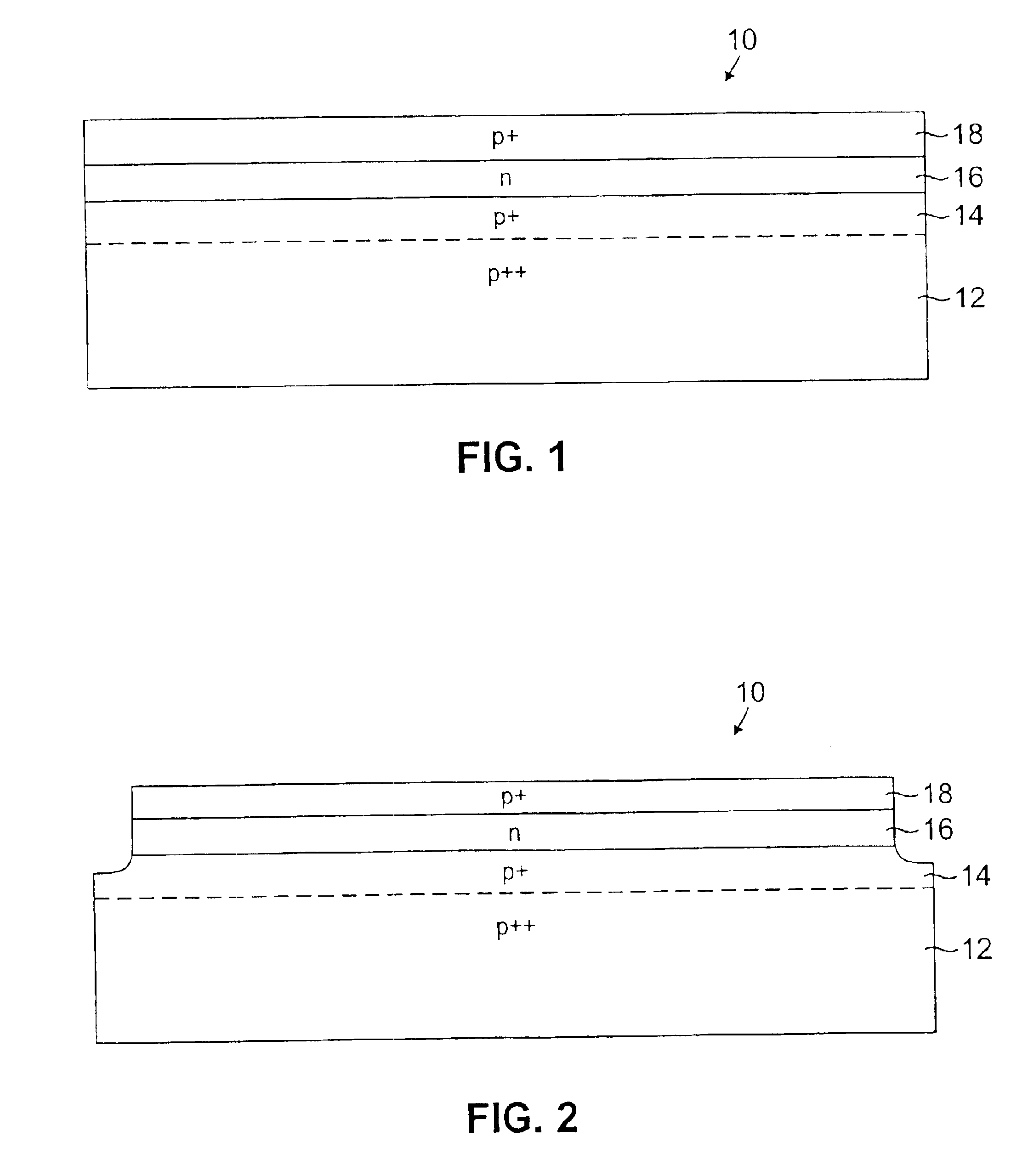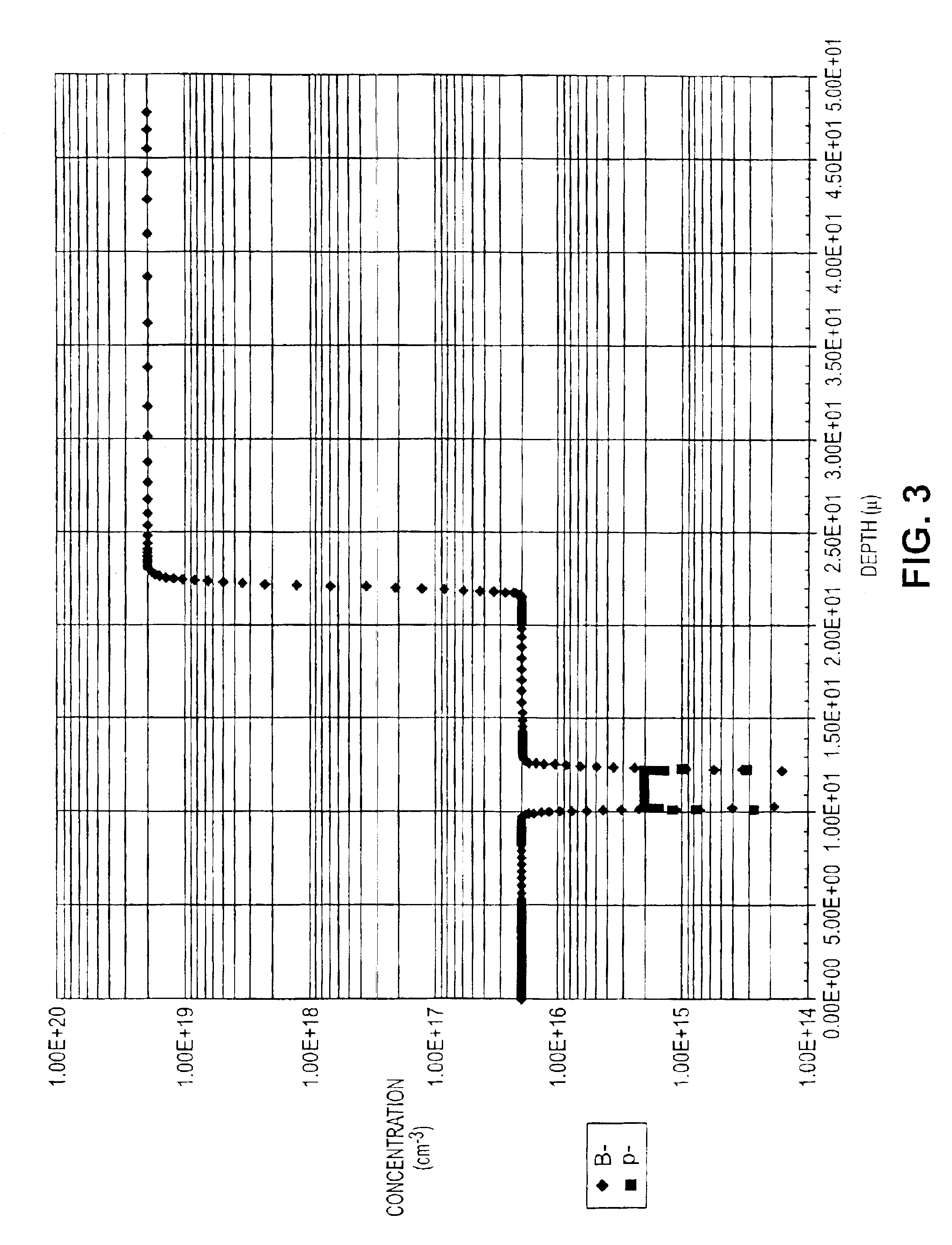Low-voltage punch-through bi-directional transient-voltage suppression devices having surface breakdown protection and methods of making the same
- Summary
- Abstract
- Description
- Claims
- Application Information
AI Technical Summary
Benefits of technology
Problems solved by technology
Method used
Image
Examples
example
Six wafers were made in a trial run according to the procedures to follow.
Three epitaxial layers were grown in one continuous process step. The wafers were not exposed to air and not cooled down during the continuous growth of the three layers. The p++ substrates had resistivities ranging from 0.005 to 0.002 ohm-cm. The first p+ epitaxial layer was 10 microns in thickness and had a resistivity of 0.5 ohm-cm. The n epitaxial layer was 2.5 microns in thickness and had a resistivity of 2.5 ohm-cm. The second p+ epitaxial layer had a thickness of 20 micron and a resistivity of 0.5 ohm-cm. After epitaxial layer growth, a boron deposition step was performed for 1 hour at 1100° C., with a slow temperature ramp up and ramp down. This deposition is performed on both sides of the wafer in a single step, creating ohmic contacts (p++ regions).
A silicon nitride layer having a thickness of 200 nm was then deposited using conventional techniques.
A patterned photoresist layer was then applied to th...
PUM
 Login to View More
Login to View More Abstract
Description
Claims
Application Information
 Login to View More
Login to View More - R&D
- Intellectual Property
- Life Sciences
- Materials
- Tech Scout
- Unparalleled Data Quality
- Higher Quality Content
- 60% Fewer Hallucinations
Browse by: Latest US Patents, China's latest patents, Technical Efficacy Thesaurus, Application Domain, Technology Topic, Popular Technical Reports.
© 2025 PatSnap. All rights reserved.Legal|Privacy policy|Modern Slavery Act Transparency Statement|Sitemap|About US| Contact US: help@patsnap.com



